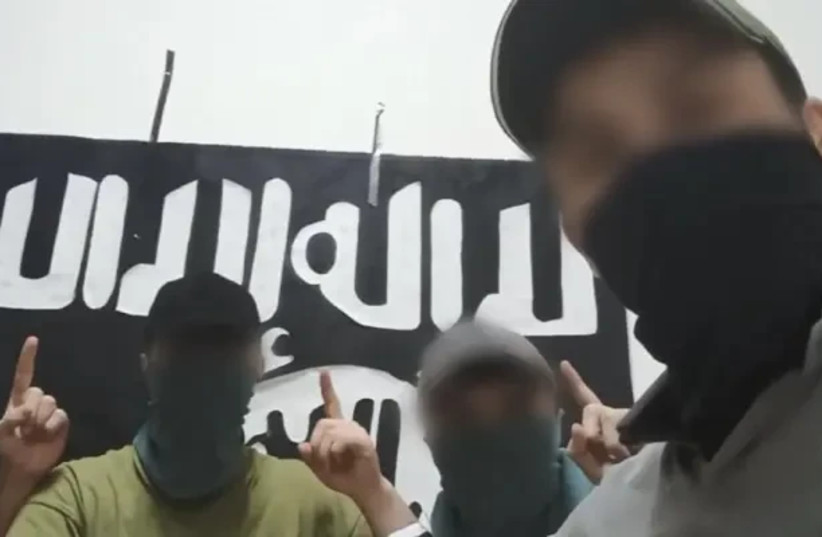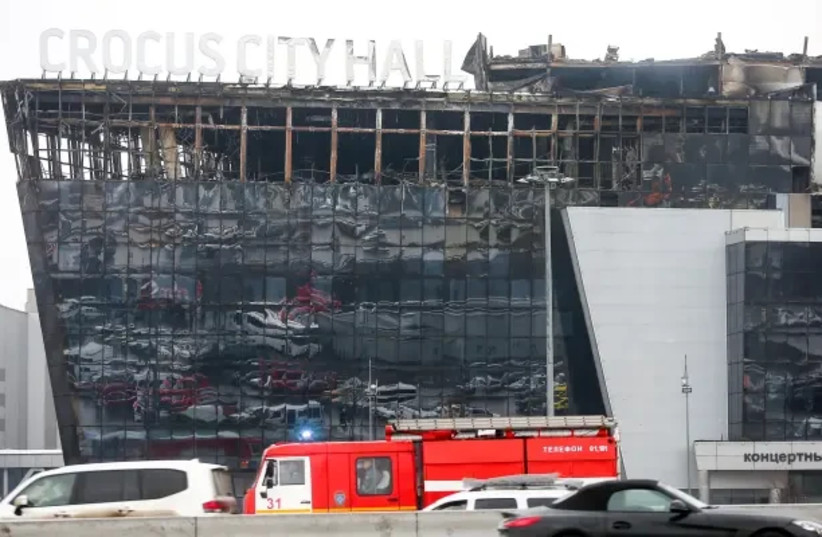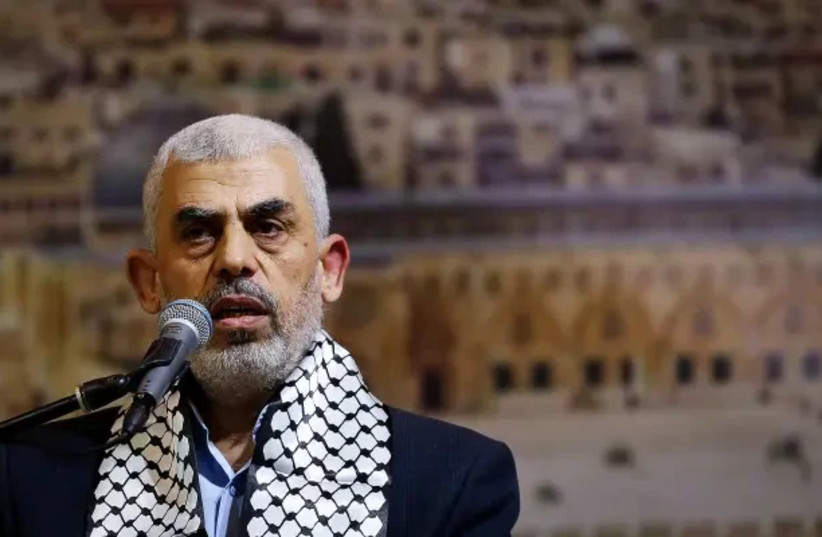The shocking attack in Moscow on March 22, that claimed the lives of close to 150 people at the date of publication, brought ISIS back into the headlines. The Islamic State was physically eliminated in the Middle East in 2017 after the American coalition captured its two centers – Mosul in western Iraq and Raqqa in northern Syria. Despite the certain technical differences, ISIS and Hamas have quite a bit in common.
ISIS is a breakaway of al-Qaeda with the jihadist Wahhabi ideology and Hamas is a faction of the Muslim Brotherhood, both of which are interested in "returning" Islam to its alleged origins through jihad, the re-establishment of an Islamic caliphate, and the application of a strict interpretation of Sharia law. In order to achieve the goal, all means are sanctioned by both organizations: ISIS and Hamas do not see any moral problem in committing atrocities in the name of religion, because the "infidel" enemy is not a human being in their view, and spilling his blood is permissible.
ISIS lost its grip on its huge "caliphate" that existed between 2014-2017, as a result of the efforts of Kurdish and allied Arab fighters on the ground, alongside a US-led international coalition as well as Russian military support.
Most of Russia's contribution to the war against ISIS was fighting in Syria on behalf of Bashar Assad and the Syrian regime. Since then, ISIS has been out for revenge against both Russia and the US. But this does not prevent Russia's supporters in the Middle East from repeatedly repeating a conspiracy theory, according to which the US is using ISIS to destabilize the Middle East and to provide an excuse to keep American forces in Iraq and Syria. Even now, after the attack in Moscow, quite a few Arab commentators are repeating the theory that the US is behind the ISIS attack, to supposedly help Ukraine.
Who carried out the attack?
ISIS's Amaq agency operating on Telegram has published an acceptance of responsibility for the attack in Moscow. The attack was carried out by one of the cells of the organization known as "Khorasan Province," referring to a historical name for the region that includes eastern Iran, Afghanistan, and Turkmenistan. This organization has been operating in the east of Afghanistan since 2015, and is currently fighting against the Taliban for control of the country. ISIS was forced to go underground in Afghanistan following the Taliban takeover in September 2021, after the US withdrawal from the country. The American withdrawal significantly damaged the intelligence capabilities of the West to monitor the activities of Khorasan Province.

Like other ISIS factions, Khorasan Province considers all Muslims in the world who do not submit full to its control to be infidels, whether they are Sunni or Shi'ite. Therefore, they carried out attacks against Sunni mosques in Afghanistan and also against Shi'ite targets in Iran. In 2021, Khorasan Province carried out a serious attack against American soldiers at the Kabul airport, killing 13 US soldiers and 169 Afghan civilians.

It seems that when it comes to the fight against ISIS, cooperation between the two great powers is maintained. The US sent a warning to Russia about a month ago that ISIS intended to carry out terrorist attacks in Russia. According to the Russian security services, the FSB, in early March two terrorist attacks by ISIS were foiled, one in the city of Karabulak in the northern Caucasus and the other in the capital Moscow against a synagogue.
There is no doubt that ISIS is trying to take advantage of global instability to sow more anarchy and fuel conflicts and wars. The wars in Ukraine and Israel strengthen ISIS's motivation to carry out attacks right now. It is important to note that ISIS is suffering from a crisis in areas that were previously under its control. However, cells of the organization still exist in the deserts of Syria and Iraq and carry out attacks from time to time to signal that the organization still exists. In February, the spokesman for the Kurdish autonomous region in northern Syria stated that at least ten thousand ISIS terrorists roam the Syrian desert.
According to him, the organization has carried out 50 attacks against the Syrian army and Kurdish forces since the beginning of the year. But a recent study by the BBC suggested that this number may be much lower than the number of attacks in previous years. According to the study, the number of attacks by the organization worldwide has drastically decreased since 2018 and reached an all-time low in 2024. The British survey also included "Khorasan province" in Afghanistan, which claimed responsibility for only 20 attacks in 2023 compared to 145 in 2022 and 293 in 2021.
However, the data also show that the recent attacks were numerically more deadly than in the past. For example, in the last attack in 2023, a suicide bomber blew himself up at a meeting of a society for Islamic scholars in northwestern Afghanistan, killing 60 people. According to the BBC's research, ISIS activity is also increasingly moving to the Sahel region of Africa, taking advantage of the instability and civil wars on the continent. In addition, there has been an increase in ISIS attacks in the Philippines.
Why now?
ISIS is out for revenge against Russia, starting with the war between al-Qaeda (the organization from which it split) and the Soviet Union in Afghanistan in the 1980s, continuing on to Russia's war against ISIS in Syria starting about a decade ago, and also including the current Russian aid (mainly Wagner forces) to West African countries to help them fight against ISIS, mainly In Mali, Burkina Faso, and Niger. The timing of the attack in Moscow is probably also related to the fact that harming Russian President Vladimir Putin, who has just been "elected" for another term, is one of the goals of ISIS. It is also not impossible that the motivation for the attack is also partially internal: the relatively new leader of Khorasan Province, Shahab al-Muhajir, is trying hard to prove his terrorist abilities in order to get a higher commanding position in ISIS as a whole.

The fear in Hamas is to follow the path of ISIS
The greatest fear of Hamas is to reach the situation in which ISIS is today: losing its grip on the ground, establishing headquarters in unstable third world countries or hiding in the world using dormant cells. Hamas's greatest fear is losing control of Gaza and wandering underground between countries for fear of assassinations. It seems that Lebanon will be the only place in our region where Hamas would be able to operate fully on the ground (under the auspices of Hezbollah and in Palestinian refugee camps) the day after the war in Gaza. It is doubtful whether Turkey and Qatar will want to continue sponsoring the organization when its leaders are in Mossad's crosshairs and no longer represent the Gaza Strip.
The level of concern of the Hamas leadership has increased significantly recently following the persecution of the Muslim Brotherhood, the parent organization of Hamas, in most countries of the region. The Brotherhood was outlawed in Jordan, Syria, Egypt, Tunisia, and the Gulf countries. Recently, a death sentence was imposed on the leader of the Brotherhood in Egypt, and the leader's Turkish citizenship was revoked.
ISIS lost the "caliphate" and now Hamas is close to losing Gaza and even the dream of a "complete Palestine." It can be assumed that if and when Hamas becomes an organization that has no physical grip in Gaza, it will follow the path of ISIS and try to carry out attacks in the world, most likely focusing its activities against Jewish communities and Israeli tourists. Hamas, like ISIS, cannot be eliminated as an ideology, unfortunately. Nevertheless, the experience of ISIS shows that it is possible to significantly weaken Hamas, take away its grip on the territory, and make it go on the run.
